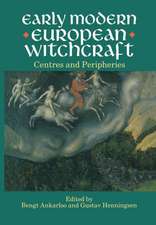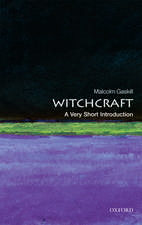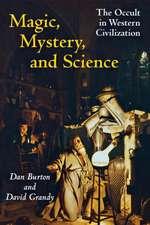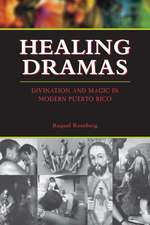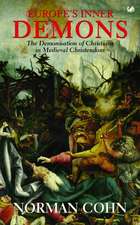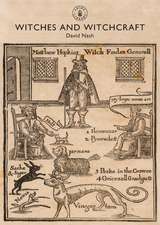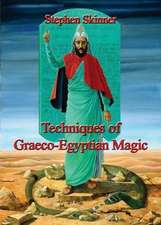Tituba, Reluctant Witch of Salem – Devilish Indians and Puritan Fantasies: The American Social Experience
Autor Elaine G. Breslawen Limba Engleză Paperback – 31 iul 1997
| Toate formatele și edițiile | Preț | Express |
|---|---|---|
| Paperback (1) | 225.71 lei 43-57 zile | |
| MI – New York University – 31 iul 1997 | 225.71 lei 43-57 zile | |
| Hardback (1) | 525.26 lei 43-57 zile | |
| MI – New York University – 30 noi 1995 | 525.26 lei 43-57 zile |
Din seria The American Social Experience
-
 Preț: 241.08 lei
Preț: 241.08 lei -
 Preț: 239.51 lei
Preț: 239.51 lei -
 Preț: 240.49 lei
Preț: 240.49 lei -
 Preț: 244.90 lei
Preț: 244.90 lei -
 Preț: 245.49 lei
Preț: 245.49 lei -
 Preț: 242.92 lei
Preț: 242.92 lei -
 Preț: 210.32 lei
Preț: 210.32 lei -
 Preț: 227.62 lei
Preț: 227.62 lei -
 Preț: 245.49 lei
Preț: 245.49 lei -
 Preț: 240.27 lei
Preț: 240.27 lei -
 Preț: 242.22 lei
Preț: 242.22 lei -
 Preț: 241.64 lei
Preț: 241.64 lei -
 Preț: 253.55 lei
Preț: 253.55 lei -
 Preț: 243.19 lei
Preț: 243.19 lei -
 Preț: 243.58 lei
Preț: 243.58 lei -
 Preț: 242.40 lei
Preț: 242.40 lei -
 Preț: 226.67 lei
Preț: 226.67 lei -
 Preț: 247.23 lei
Preț: 247.23 lei -
 Preț: 225.49 lei
Preț: 225.49 lei -
 Preț: 226.67 lei
Preț: 226.67 lei
Preț: 225.71 lei
Nou
Puncte Express: 339
Preț estimativ în valută:
43.19€ • 45.21$ • 35.74£
43.19€ • 45.21$ • 35.74£
Carte tipărită la comandă
Livrare economică 07-21 aprilie
Preluare comenzi: 021 569.72.76
Specificații
ISBN-13: 9780814713075
ISBN-10: 0814713076
Pagini: 270
Dimensiuni: 152 x 228 x 15 mm
Greutate: 0.36 kg
Ediția:Revised
Editura: MI – New York University
Seria The American Social Experience
ISBN-10: 0814713076
Pagini: 270
Dimensiuni: 152 x 228 x 15 mm
Greutate: 0.36 kg
Ediția:Revised
Editura: MI – New York University
Seria The American Social Experience
Recenzii
"A fascinating theory about the origins of the witch hunt that is sure to influence future historians. . . . a valuable probe of how myths can feed hysteria."
--The Washington Post Book World "An imaginative reconstruction of what might have been Tituba's past."
--Times Literary Supplement "A fine example of readable scholarship."
--Baltimore Sun
--The Washington Post Book World "An imaginative reconstruction of what might have been Tituba's past."
--Times Literary Supplement "A fine example of readable scholarship."
--Baltimore Sun
Descriere
Tituba, a young house servant from the West Indies, allegedly influenced and encouraged occult activities among teenage girls in 17th century Massachusetts, which led to the infamous witch hunts of Salem. This book offers "an imaginative reconstruction of what might have been Tituba's past".--TIMES LITERARY SUPPLEMENT. "A valuable probe of how myths can feed hysteria".--THE WASHINGTON POST BOOK WORLD. 15 photos.
Notă biografică
Textul de pe ultima copertă
With this important book, Elaine G. Breslaw has "found" Tituba, the elusive, mysterious, and often mythologized Indian woman accused of witchcraft in Salem in 1692 and immortalized in Arthur Miller's The Crucible. Reconstructing the life of the slave woman at the center of the notorious Salem witch trials, the book traces Tituba from her likely origins in South America to Barbados, forcefully dispelling the commonly held belief that Tituba was African. The uniquely multicultural nature of life on a seventeenth-century Barbadan sugar plantation - defined by a mixture of English, American Indian, and African ways and folklore - indelibly shaped the young Tituba's world and the mental images she brought with her to Massachusetts. By dividing her biography into two parts, one focusing on Tituba's roots in Barbados, the other on her life in Massachusetts, Breslaw emphasizes the inextricably linked worlds of the Caribbean and the North American colonies, illustrating how the Puritan worldview was influenced by its perception of possessed Indians. Tituba's confession, Breslaw argues, clearly reveals Tituba's savvy and determined efforts to protect herself by actively manipulating Puritan fears. This confession, perceived as evidence of a diabolical conspiracy, was the central agent in the cataclysmic series of events that saw nineteen people executed and over 150 imprisoned, including a young girl of five.

